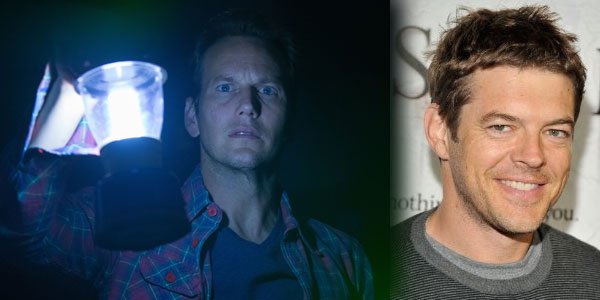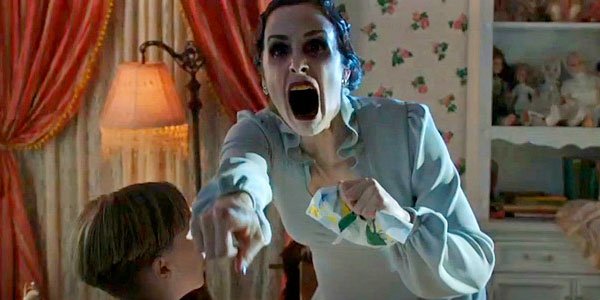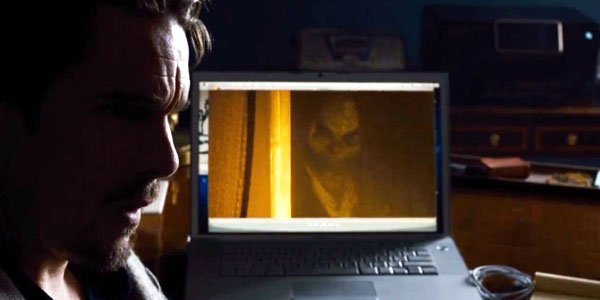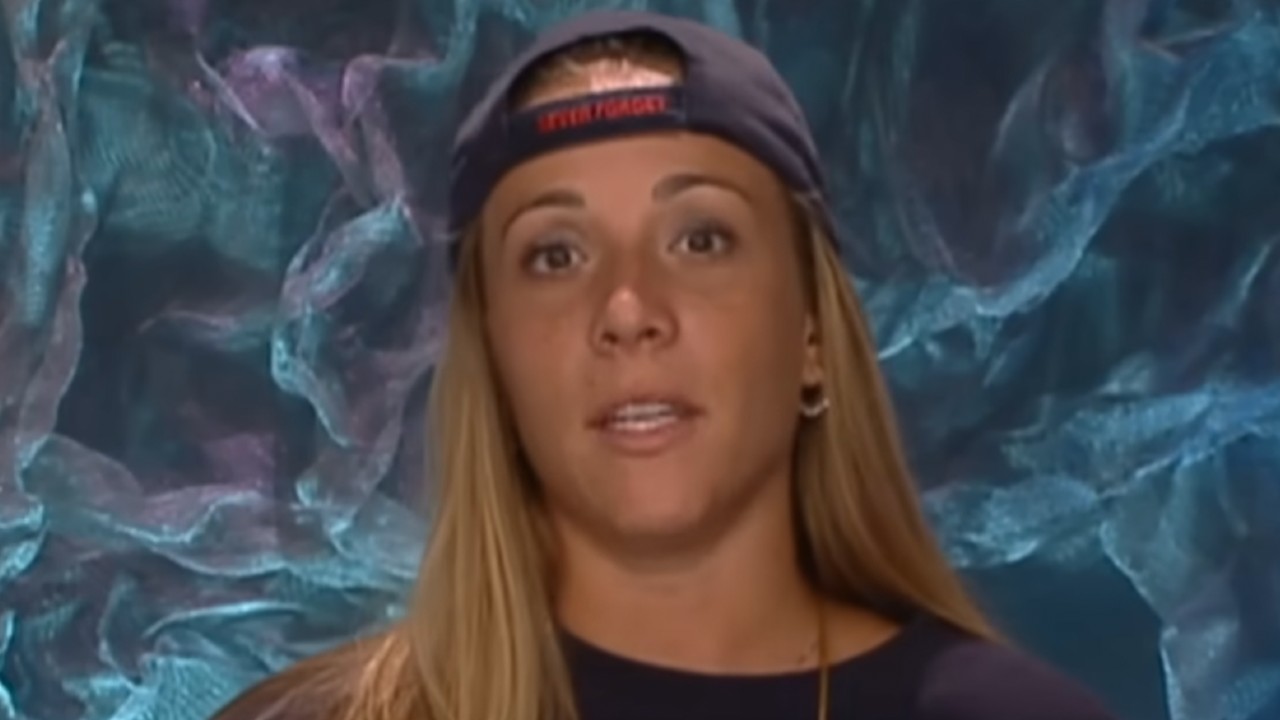Insidious: Chapter 2 Producer Jason Blum Admits Horror Haters Fuel His Drive

Jason Blum is a fascinating figure in filmmaking. His career as a producer began in theater working for Ethan Hawke’s New York City theater company Malaparte. By the mid-1990s, he moved into movie production, producing indies like Noah Baumbach’s Kicking and Screaming, Mira Nair’s Hysterical Blindness, and the Hawke-vehicle Hamlet, which re-imagined the Shakespeare play in contemporary NYC. But in 2000, Blum made the bold move to delve into his love of the horror genre by founding Blumhouse Productions.
The production company has dedicated itself to making low-budget horror features with reputable actors and a strong focus on story. Its model has paid off big. The Paranormal Activity franchise renewed the fervor for the found footage genre and has gone on to rake in more than $714 million worldwide off four films that cost between $15,000 and $5 million to make. Last fall saw the release of Sinister, which starred Blum’s long-time friend Hawke. The cryptic pic won critical praise, cost just $3 million, and made $77 mil worldwide. Similarly, the Blumhouse production The Purge also cost $3 mil, and was declared a big winner this summer, netting more than $85 million at the box office.
Clearly, with all this success Blum has become a tastemaker in horror. And as an avid fan of the genre and the movies he has produced, I was eager to sit down with him to discuss his latest Insidious: Chapter 2. The sequel to the 2011 hit that won over critics and took in more than $97 million worldwide continues the story of the haunted Lambert clan. Reteaming with a cast that boasts Patrick Wilson, Rose Byrne, and Barbara Hershey, screenwriter Leigh Whannell and director James Wan crafted a creepy second chapter that not only takes audiences deeper into the Further, but also forces them to reconsider the events from the first film.
I wasn’t sure what to expect from Blum as I approached the swanky hotel suite where the press junket had placed him for interviews. But I was delighted to find he his love of horror runs deep and sincere, and his ambition for the genre extends to Oscar gold. And, no, he won't be deterred by the genre's detractors.
So first off, I’m excited to speak with you because I’ve enjoyed a lot of your movies.
Jason Blum: Oh good! I’m glad to hear that.
And then not enjoyed them because I can’t sleep.
Your Daily Blend of Entertainment News
Oh good!
I was hoping you could talk about what you feel your role as a producer is because you’ve said before you think what’s key to making these small budget movies work is giving a lot of the creative control to the writer and director. So, what do you think your role as a producer is?
I think already that’s a big role because a lot of people don’t do that. So I think letting creative people do what they do—as weird as it sounds—takes a lot of creative deal making to allow that to occur. Once it does happen, when you give a director total creative control over his work, he is much more likely to solicit advice from us, because he—or she—knows he doesn’t have to take it. And we (Blumhouse Productions) have a ton of data because all we do are these low budget scary movies. And we’ve learned a lot from the directors we’ve worked with, from Scott Derrickson or from James (Wan), Rob Zombie. And so we have a lot of data.
So when we get a script we give a HUGE document which says essentially ‘this is what we do’ (to a filmmaker). The document is given with the spirit of ‘Do anything you think will make the movie better, do it. And if it doesn’t, don’t.’ We don’t argue about it for seven years. And truth be told, we actually have a lot more creative involvement in the movies than I’ve experienced working at companies where it’s the other way around. And that goes all the way through, with script, with casting. We actually have a list of actors that we are friendly with who understand our business model. We give that to the directors and try to pick actors from that list. Then tthe production runs through the company, and we shoot most of our movies in LA. So, all the department heads people are usually people who have done our other movies before, and then same thing with editing. We look at cuts and we give a lot of input, but we don’t force the creative people to take it.
They are not mandates you give; they are actual notes?
They are actual notes, yeah. Every time we give a note its like, “If you think it makes it better, great. If you don’t, don’t do it.”
It’s interesting. This sounds less like typical film production and more like a theater company.
It is a lot like a theater company. I used to have a theater company here in New York. And there’s a lot about (making Blumhouse movies) that’s like a troupe. When we’re shooting our movies it’s that way too. Like no one has a trailer on our movies, we’re all kind of hanging out together. They are very short. The shoot is very short. It’s very actor-friendly in that. It’s not very actor-friendly in terms of perks because the actors don’t get any perks. But it’s very actor friendly in terms of we go fast, and I think actors—when you do a half a page a day (as some bigger productions do)—it drives you crazy as an actor. So there is a lot about that feels like a theater company. Our old school kind of we have a big building in downtown LA where everyone is (lends to that as well). It’s our production office, our editorial suite—everyone’s there and it feels like an old school kind of Hollywood system.
Now in Insidious: Chapter 2 you guys shot entirely on location?
Yeah, all on location.
Now how do you feel that affects the final product?
We don’t have the money to build sets, so we don’t build them. We very rarely will do a build. There are few exceptions, but very rarely will de do a build. And I think that’s great. It’s better for the actors; it makes it feel more real. I think the restraints that shooting practically puts on production makes the movie better, even though it makes it harder to shoot.
I was actually shocked to find that in Insidious Chapter 2 you did so much on location because the houses you picked are so extraordinary. And not just in the look of them, but in their layouts. Like in Insidious and the Paranormal Activity series, such a major aspect of them is geographical awareness of where we are within the house.
Yeah. Yeah. Yeah.
How does that inform for you choosing locations?
I think the location is almost as important as casting the leads of the movie. The location on The Purge was crucial to that movie working. And there was actually another location that we almost used, which I saw. The director hated it, and he was being told by the line producer he had to do this because we couldn’t afford the house we actually shot in. And I said, “No, we can’t. We got to find the money somewhere else,” and shoot it in the house we shot it in. It wouldn’t have been nearly as good of a movie if we’d shot in this other place. And most of our movies don’t take place in a lot of big locations, you know? So we have to kind of pick one or two and that’s where we live while we shoot ‘em. But I do think it’s a very, very important choice in scary movies, where they take place. Whether it’s spooky looking or very normal looking, obviously the Paranormal houses are very mundane. But I think that’s important too.

When I went to the trailer reveal there was a lot of talk about shooting on location at Linda Vista community hospital. Why did that location mean so much to the production?
I just love that location. It feels like its haunted when you’re in there, so it definitely is inspiring to make a scary movie in there. But it feels—without any filming or any set dressing--super spooky. So I think that’s why we talked about it a lot. It’s a very haunted place.
And you guys were one of the last crews that shot there, right?
I think it’s done for filming. I think they are tearing it down.
I heard it’s going to become low-income housing or something, which is even creepier frankly.
Jesus, I hope they do a good remodel.
Between this, Paranormal Activity, and possible sequels for Sinister and The Purge, you're quickly becoming a major driving force in where the genres going. Where would you like to see horror develop?
Um, I don’t have a specific (plan). Really what we look for in all the movies you just mentioned and all the movies going forward is a great story that feels original that has scary stuff in it. It’s not like we look for like—I never say, “Well what are the scares, we’ll worry about the story later.” I always say, “Well, let’s figure out what the story is.” Like the story in Sinister is about a guy choosing his career over his family, and struggling with that, right? Or the story in Insidious is about losing your kid, and how that shakes things up. Or the story in The Purge is about this normal family is stirred up by this beginning violent event. So really my favorite thing about the movies we make, and the movie’s we’ll continue to make is that we look for grounded, real-feeling, compelling stories. I had this conversation with Ethan (Hawke), who never like horror movies until I talked him into doing Sinister and now he has grown to at least understand them more. He didn’t like them because he doesn’t like being scared, and he was worried about being scared on set.
Yeah?
The sets of horror movies are not scary, you know. And he didn’t realize that, and then when he was like, “Oh this is fine,” we did The Purge later. Which is why we did that because he liked it. We always say, what I’m doing now—more in terms of pointing back instead of looking forward to answer your question—so much of the independent film that he and I are in the generation that we came up in of the 90s (industry) and I worked at Miramax at that time, has moved to TV. That dramatic work is really now on television. But there’s a part of these movies that are like the independent cinema of the 2010s. You know what I mean?
We’re really making independent movies—and they are made completely independently. And they are even independent movie stories, they are just tucked into genre. You know, Sinister is an independent movie about a guy choosing his career over his family, but it’s in a genre movie. The Purge is the same thing. Insidious is the same thing. Paranormal Activity is the same thing. They’re dramas, but they have set in them in the space of genre movies. There’s a million different stories we can tell, but that’s what I hope to continue to do.

Your concept of story first makes sense to me. I’m a critic, blogger, and horror fan, and in that horror is the genre I have to defend for liking more than any other.
Yeah. Me too. It’s so annoying.
But that’s what’s funny! So many of your films I’ve had other critics tell me, “No, it’s good! And I don’t even like horror movies!”
Right. Right. Right.
Why do you think horror as a genre typically has this bad wrap?
I don’t know. For some reason people value being scared less than they value laughing. They value (horror) less than they value straight drama. And I don’t know why. I understand straight violence, like some people have a real issue with violence on screen. I totally get that. But a lot of horror--Insidious is PG-13, it’s not violent. So, I don’t understand. You know, I did The Town that Dreaded Sundown with Ryan Murphy, and I learned a lot from him about this. First of all, we’re very similar in that he loves musicals as much as horror movies—as do I. Like when I come to New York, all I do is go see musicals. I love musicals. I love horror movies and I love art movies. And I just produced A Normal Heart, which couldn’t be an artier movie, for HBO with Ryan directing. And we produced The Town that Dreaded Sundown which couldn’t be a poppier movie, you know?
And I think it could be—I haven’t talked about this actually ever, but I think about it all the time. I think being snobby about the kind of storytelling people do, it just irks me. It irks me. And in fact, it’s one of the things that drives me to make as many horror movies as I do. Because I think that it’s so stupid (this snobbery). I love horror movies. I’m proud of horror movies. I love working in horror, and I’d love to make horror movies for a long time to come. That’s a longer answer than you anticipated?
No, that’s great! I feel the same way. I get frustrated when I feel like I’m being forced to defend my presumed bad taste when I like a horror movie.
It’s crazy. And it’s no better or worse than a Sundance movie—and I love Sundance movies too. I’m not snobby about that either, but it’s no better or worse. It’s about people telling stories.
So, kind of on a similar note: Congratulations on becoming a member of the Academy of Motion Picture Arts and Sciences!
Thank you.
I have a theory, and I’m curious of your thoughts on it. Looking at the list of new members, made me think that maybe the Oscars are getting over their long-held bias against genre.
(Flatly) No. (I laugh.) But I’m going to help them! But they’re not. They’re not. They’re not. I think we’re a long way away from there, but I think horror movies are definitely cooler than they used to be. Vera Farmiga five years ago—or whoever the Vera Farmiga equivalent of five years ago was—would never have done The Conjuring in 2008. I think that they’re getting cooler. I don’t think they are Academy-worthy yet, but I’m working on it. Five more years!
(At this point the publicist gave me the “one last question” signal.)
Is there anything you can tell us about Paranormal Activity 5?
Um, it’s very scary.
That’s all I can get!
(I make a disappointed face, Jason laughs hard.)
Insidious: Chapter 2 opens Friday the 13th.
Staff writer at CinemaBlend.

